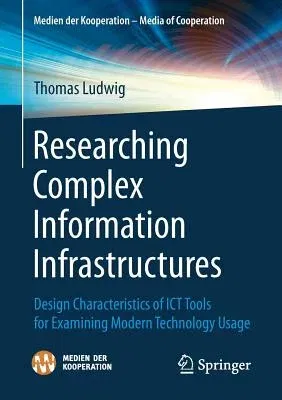Thomas Ludwig
(Author)Researching Complex Information Infrastructures: Design Characteristics of Ict Tools for Examining Modern Technology Usage (2017)Paperback - 2017, 7 June 2017

Qty
1
Turbo
Ships in 2 - 3 days
In Stock
Free Delivery
Cash on Delivery
15 Days
Free Returns
Secure Checkout

Part of Series
Medien Der Kooperation - Media of Cooperation
Part of Series
Medien Der Kooperation
Print Length
290 pages
Language
English
Publisher
Springer
Date Published
7 Jun 2017
ISBN-10
3658169206
ISBN-13
9783658169206
Description
Product Details
Author:
Book Edition:
2017
Book Format:
Paperback
Country of Origin:
NL
Date Published:
7 June 2017
Dimensions:
21.01 x
14.81 x
1.65 cm
ISBN-10:
3658169206
ISBN-13:
9783658169206
Language:
English
Location:
Wiesbaden
Pages:
290
Publisher:
Weight:
371.95 gm